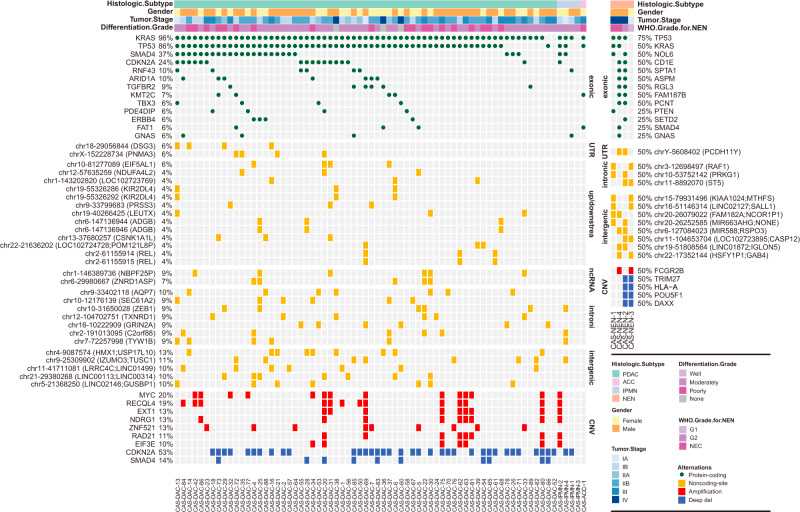All products and services are For Research Use Only and CANNOT be used in the treatment or diagnosis of disease.
Pancreatic cancer is one of the highly malignant cancers with a poor prognosis and nearly 3% of five-year survival rate. Our knowledge about pathogenesis, early diagnosis, and effective treatment is rare for pancreatic cancer. CAR-T therapies have got exciting outcomes in Leukemia treatment and are adapted for various advanced solid tumors. Cancer organoids that recapitulate the pathological and genetic characteristics of tumors can be adapted to facilitate the research on tumor profiling and evaluation of the functions of immunotherapies.
Creative Biolabs provides a group of thoroughly characterized pancreatic cancer organoid models to test the efficacy of specific CAR-T cells for cancer treatment.
 Fig.1 Pancreatic cancer organoid serves as a functional preclinical research model. (Shi, et al., 2022)
Fig.1 Pancreatic cancer organoid serves as a functional preclinical research model. (Shi, et al., 2022)
 Fig.2 Our establishing workflow of pancreatic organoid models. (Creative Biolabs)
Fig.2 Our establishing workflow of pancreatic organoid models. (Creative Biolabs)
The histological and genomic characteristics of the established organoids and the initial tumors are measured, using various advanced tumor profiling technologies.
| Type of Cancer Organoid | Morphology | Tumor cell identification |
| PDAC organoid models | Glandular tubular structures |
|
| IPMNs organoid models | Data under update |
|
| ACC organoid models | Data under update |
|
| NENs organoid models | NENs-specific Islet morphology |
|
Creative Biolabs provides CAR-T products targeted to the following cancer associated antigens and can be applied to pancreatic cancer organoids treatment in vitro.
| Target Antigen | Target Description | Products |
| HER2 | HER2 is amplified in multiple cancers, including breast, gastric, and pancreatic, and is a therapeutic target for cancer treatment. | Anti-HER2 CAR-T |
| PSCA | PSCA expression is increased in human pancreatic cancer than in normal tissues. CAR-NK directed to PSCA displayed repression effects on PSCA+ pancreatic cancer. | Anti-PSCA CAR-T |
| MUC1 | Expression of MUC1 is elevated in nearly 90% of pancreatic cancer patients and is a valuable biomarker for diagnosis and targeted treatment. | Anti-MUC1 CAR-T |
| EpCAM | Epithelial cell adhesion molecule (EpCAM) is a transmembrane glycoprotein. The high expression of EpCAM is associated with the development and progression of tumors. | Anti-EpCAM CAR-T |
| CEA | Carcinoembryonic antigen (CEA) is a robust biomarker that can be used to predict advanced pancreatic ductal adenocarcinoma (PDAC). | Anti-CEA CAR-T |
| Avb6 | Avb6 protein is expressed in approximately 80% of pancreatic cancer and is associated with the growth and metastasis of tumor cells. | Anti-Avb6 CAR-T |
| Pancreatic Cancer Organoids Derived from Patient Tumor Tissue | |
|
|
| Representative Results |
 Fig.3 Histological and immunohistological patterns of cancer organoids and tumor tissues. (Shi, et al., 2022) |
 Fig.4 Whole genome analysis of patient-derived pancreatic organoids. (Shi, et al., 2022) |
|
Creative Biolabs provides well-established cancer organoid models for the evaluation of CAR-T cell functions in vitro to help clients develop the safest and most efficient therapies. Please contact us and get more detailed information.
Reference
For any technical issues or product/service related questions, please leave your information below. Our team will contact you soon.
 NEWSLETTER
NEWSLETTER
The latest newsletter to introduce the latest breaking information, our site updates, field and other scientific news, important events, and insights from industry leaders
LEARN MORE NEWSLETTER NEW SOLUTION
NEW SOLUTION
CellRapeutics™ In Vivo Cell Engineering: One-stop in vivo T/B/NK cell and macrophage engineering services covering vectors construction to function verification.
LEARN MORE SOLUTION NOVEL TECHNOLOGY
NOVEL TECHNOLOGY
Silence™ CAR-T Cell: A novel platform to enhance CAR-T cell immunotherapy by combining RNAi technology to suppress genes that may impede CAR functionality.
LEARN MORE NOVEL TECHNOLOGY NEW SOLUTION
NEW SOLUTION
Canine CAR-T Therapy Development: From early target discovery, CAR design and construction, cell culture, and transfection, to in vitro and in vivo function validation.
LEARN MORE SOLUTION